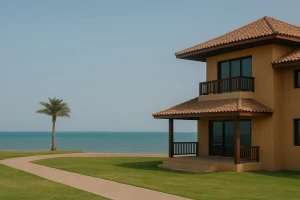Latest News
- Expats Alert: PACI Just Changed The Rules For Updating Your Addr...
- Best Pizza In Kuwait: Top Brands And What To Order
- Best Budget-Friendly Chalets & Villas In Kuwait For Weekend Geta...
- Why Electricity Bills Are Rising In Kuwait & Smart Ways Expats C...
- App Store Optimization: Why It’s Becoming A Core Part Of SEO Str...
- Best Shower Filters In Kuwait For Hair Fall And Skin Protection
- Exness Sets A New Standard Of Consistency In The Trading Industr...
- Instant Withdrawals In Trading – A Game Changer For Traders In K...
- Best Abaya Shop In Kuwait: Editorial Review Of Abay.com
- IPhone 17 In Kuwait: Prices, Colors, Specs & Where To Buy
- Best Drinking Water Filter For Home In Kuwait
- Avoid Common Qatar E-visa Application Mistakes. Learn The Top 5...
Expat Appeals Jail Sentence In 'Hospitality' Case
The Court of Appeal, led by Counselor Nasr Salem Al-Heid, has overturned a previous ruling in absentia, reducing the imprisonment term of an expatriate accused in the Interior Hospitality case from 30 years to 15 years. Additionally, it upheld the imprisonment sentence of three other defendants, including a Kuwaiti businessman, for 10 years each, reports Al-Jarida daily. The defendants were accused by the Public Prosecution of money laundering and seizing over 36 million dinars from the Ministry of Interior through organized operations. They were also charged with forging fake invoices in collaboration with others, utilizing electrical companies, gifts, and hotels to conceal illicit funds in other bank accounts.
Originally, the Criminal Court had sentenced one defendant to 30 years in absentia and the remaining defendants to 10 years each, along with fines and an order to return excess amounts exceeding 76 million dinars. The Public Prosecution published the accused individuals’ names in the Official Gazette, indicating that they must be tried before the Court of Appeal to finalize the ruling. The recent ruling by the Court of Appeal modifies the sentence for one defendant while upholding the penalties for the others, providing them with one level of recourse before the Court of Cassation.





